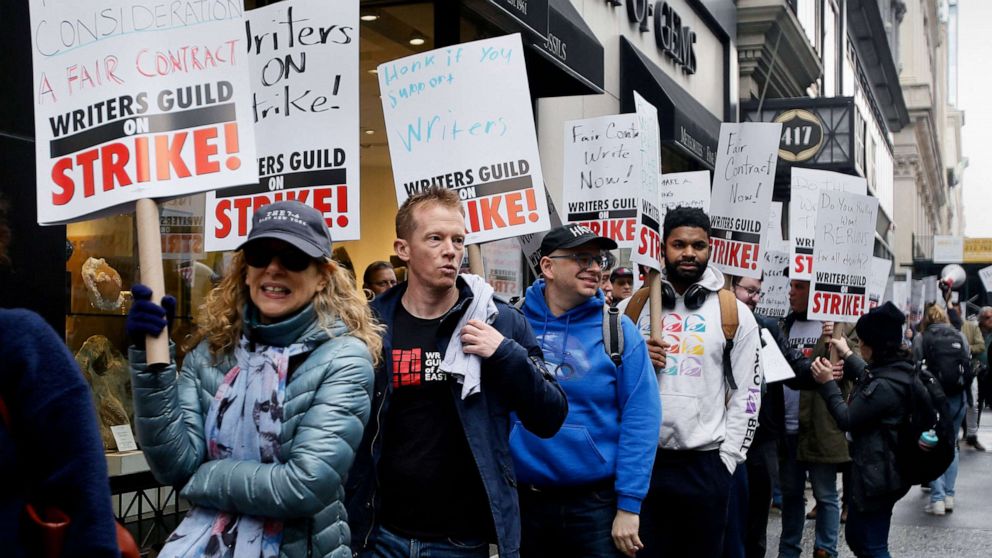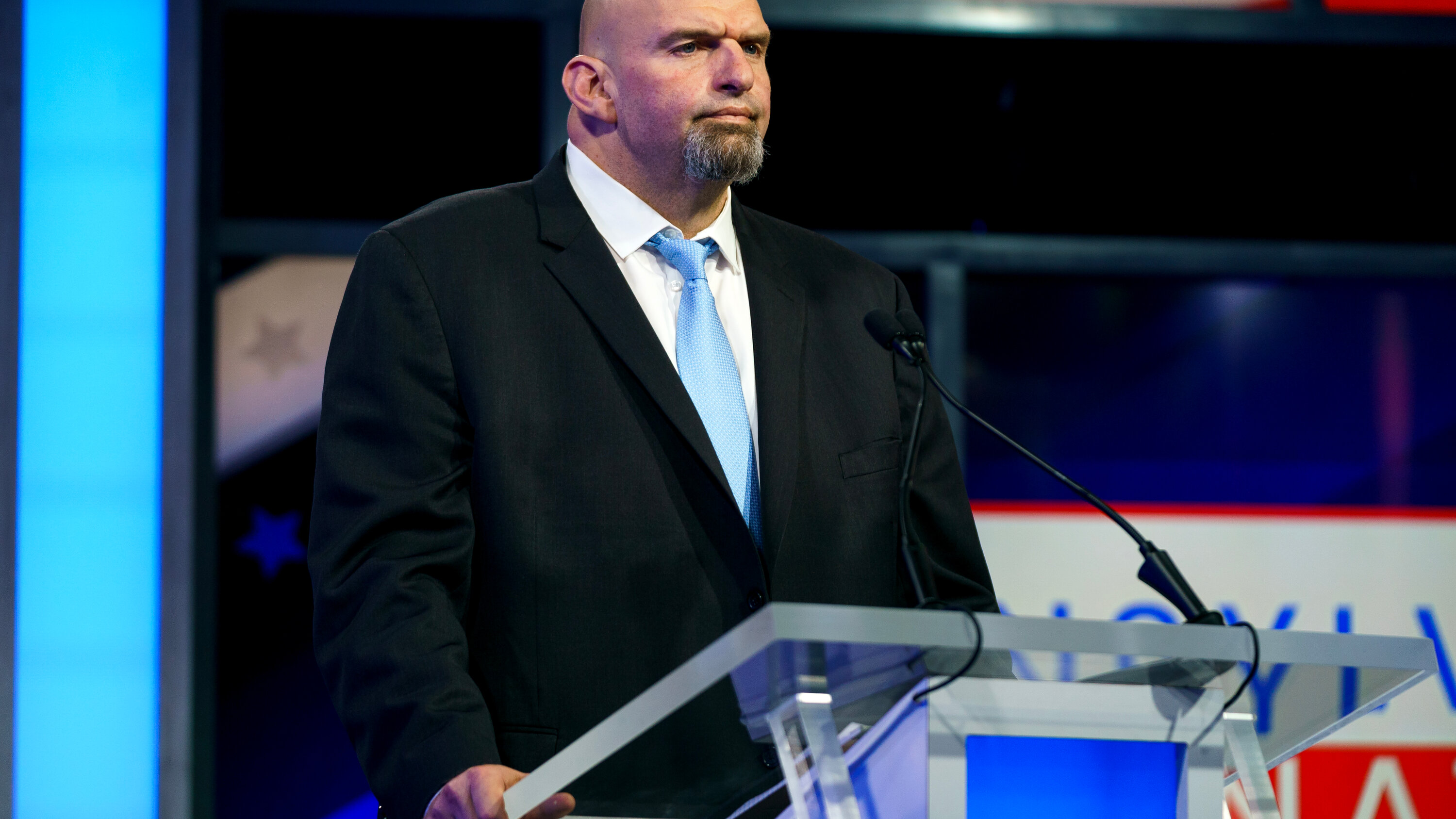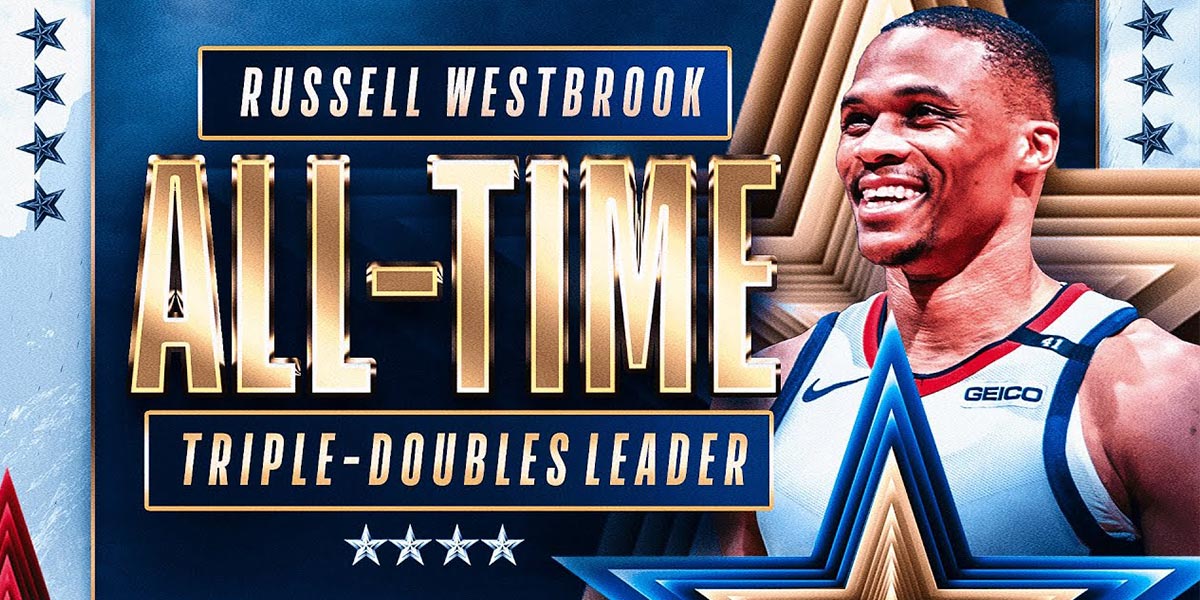Actors And Writers Strike: What It Means For Hollywood

Table of Contents
Key Demands of the Actors and Writers Strike
The core issues driving the actors and writers strike are multifaceted, encompassing fair compensation, the rise of AI, and improvements to working conditions.
Fair Compensation and Residuals in the Streaming Era
The traditional model of television and film residuals – payments actors and writers receive each time their work is aired – has been drastically altered by the rise of streaming services. Streaming platforms operate on subscription models, offering opaque revenue streams, making it difficult for creatives to track earnings and negotiate fair compensation. This is a significant point of contention for both the WGA and SAG-AFTRA.
- Netflix, Disney+, and other streamers often pay a flat fee for content, regardless of viewership. This contrasts sharply with the traditional model where residuals increased with viewership.
- SAG-AFTRA and the WGA are demanding a fair share of streaming revenue, arguing that the success of these platforms is directly tied to the work of actors and writers.
- Transparency in streaming viewership data is another key demand. Currently, the lack of access to this information makes it impossible for creatives to accurately assess the value of their work on these platforms.
Protecting Artists from AI
The increasing use of artificial intelligence (AI) in content creation is another major point of contention. Both unions are concerned about the potential for AI to replace human actors and writers, diminishing their job security and creative control.
- AI-generated scripts and deepfakes are increasingly sophisticated, raising concerns about the exploitation of actors' likenesses and the devaluation of writers' unique creative contributions.
- The unions demand safeguards against the unauthorized use of AI to replicate actors' performances or generate scripts without proper compensation or consent.
- Discussions around AI ownership of creative works are also a significant part of the negotiations. Determining ownership and compensation rights in AI-generated content is a complex legal and ethical issue at the heart of the strike.
Improving Working Conditions
Beyond compensation and AI concerns, the strike also addresses long-standing issues related to working conditions within the entertainment industry.
- Excessively long working hours and demanding schedules are common complaints among actors and writers, often leading to burnout and health problems.
- Safety regulations on set are often inadequate, particularly for actors performing stunts or working in challenging environments.
- Many actors and writers lack access to adequate health insurance and pension plans, highlighting the precarious nature of employment in the entertainment industry. The unions are pushing for improved benefits packages.
The Impact of the Strike on Hollywood Production
The actors and writers strike has had a significant and immediate impact on the entertainment industry.
Halted Productions and Delayed Releases
The strike has brought numerous film and television productions to a complete standstill.
- Major studio productions, including films and television series, have been indefinitely postponed.
- Release dates for upcoming movies and shows are being pushed back, creating uncertainty in the industry's release calendar.
- The ripple effect extends to other associated industries, such as catering, location scouting, and post-production, leading to widespread job losses and economic hardship.
Financial Implications for Studios and Streaming Services
The strike is already costing studios and streaming services millions of dollars.
- Estimates of financial losses vary, but the impact is undoubtedly substantial, with potential effects on stock market valuations.
- Studios may resort to cost-cutting measures in the long term, potentially impacting future productions and employment opportunities.
Impact on the Award Season and Upcoming Releases
The strike will have significant consequences for the upcoming award season.
- Award show ceremonies may be delayed or even canceled.
- Film festivals may be impacted, with fewer new releases to showcase.
- The Academy Awards and other award shows face uncertainty, as the eligibility criteria and selection process may be affected.
Potential Long-Term Effects of the Actors and Writers Strike
This strike has the potential to reshape the entertainment industry for years to come.
Reshaping the Entertainment Industry
The strike could lead to significant changes in how the entertainment industry operates.
- New compensation models and revenue-sharing agreements are likely to be negotiated.
- Improved working conditions and increased union protections are possible outcomes.
- The strike could boost independent filmmaking, as productions outside the major studio system may be less affected.
The Future of Streaming and Content Creation
The strike could fundamentally alter the relationship between studios and streaming platforms.
- The balance of power between studios and streamers may shift, giving more leverage to the creative workforce.
- New content production models may emerge, potentially offering better compensation and working conditions for actors and writers.
- Innovative business models, such as alternative funding mechanisms for independent productions, could gain traction.
Conclusion
The actors and writers strike represents a watershed moment in Hollywood history. The key demands for fair compensation, protection from AI, and improved working conditions are vital for ensuring the sustainability and creativity of the entertainment industry. The strike’s impact on production, finances, and the award season is already significant, and its long-term effects on the industry's structure and the future of streaming are likely to be profound. Stay informed about the actors and writers strike by following reputable news sources such as Variety, The Hollywood Reporter, and Deadline. Support the striking actors and writers by advocating for fair compensation and supporting independent film projects. The Hollywood strike is not just about pay; it's about the future of creative work itself.

Featured Posts
-
 Fetterman Rejects Calls To Resign Amidst Health Scrutiny
May 08, 2025
Fetterman Rejects Calls To Resign Amidst Health Scrutiny
May 08, 2025 -
 Challenging Nba Playoffs Triple Doubles Quiz Can You Ace It
May 08, 2025
Challenging Nba Playoffs Triple Doubles Quiz Can You Ace It
May 08, 2025 -
 How Saturday Night Live Launched Counting Crows To Fame
May 08, 2025
How Saturday Night Live Launched Counting Crows To Fame
May 08, 2025 -
 Dcs Krypto The Last Dog Of Krypton Production Cast And Reception
May 08, 2025
Dcs Krypto The Last Dog Of Krypton Production Cast And Reception
May 08, 2025 -
 Dwp Announces Major Universal Credit Claim Verification Changes
May 08, 2025
Dwp Announces Major Universal Credit Claim Verification Changes
May 08, 2025
